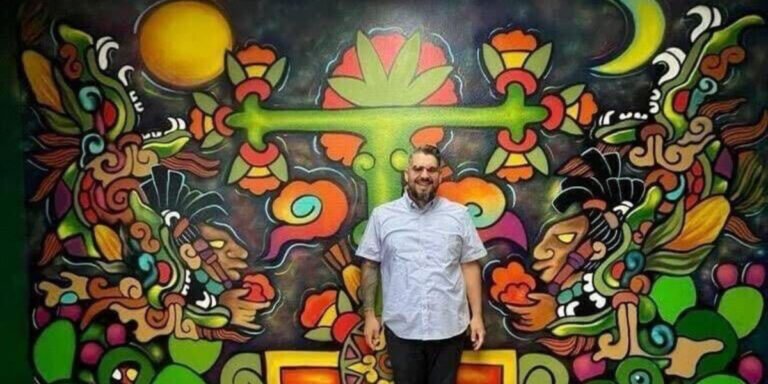It’s hard to fit into a mold when you can’t recognize it.
Growing up Mexican American in San Diego gave me an interesting set of struggles. I often felt like I was never American enough here, but I was never Mexican enough when I went there. I was aware that I have an accent in both languages – I didn’t really know if English or Spanish was my primary language. I couldn’t get my R’s en español and had trouble differentiating between “sh” and “ch” sounds in my teenage years and had cousins call me “white boy” because I spoke mostly English. Even in sports, I enjoyed watching the English Premier League over the Liga Mexicana, but I was a die-hard supporter of the Mexican national soccer team.
Growing up three exits from the US-Mexico border was like standing at the edge of the shore while a wave receded back into the ocean. Your body feels like your legs are pulling you back into infinity. This is how I feel about being Mexican American. My feet are firmly planted in this soil, but my heart beats in La Bamba.
Today, I write as its proud Mexican-American co-founder Soluna Wellness. We are an outpatient mental health facility that challenges all stereotypes and traditional methods of mental health. Soluna Wellness is for the Sun People and the Zoot Suit Riots, and the immigrants and children of immigrants who celebrate the Fourth of July as our tradition. We challenge society’s approach to mental health, we challenge the way we heal, we challenge machismo and we challenge the status quo.
Sometimes our approach seems different because we find community through creativity. We found healing through the low rider, import car, tattoo and graffiti communities. We found growth in learning about our cultures and diversity. Whether you’re just picking up a paintbrush, or a returning artist, or a Diego Rivera or Frida Kahlo, we’re all capable of creating community through art. It’s all about being vulnerable and serving others. We have found that this happens organically in our classrooms, each with its own culture. Our creative writing class is aimed at storytellers and we choose songs to help us identify who we are and how we relate to certain emotions.
Soluna Wellness is a challenge for myself, our clients and how we view the healing journey as a whole. But we will continue to reach higher branches, even if we do not fully understand our roots. Mexican Americans have a unique experience and together as a community we can work together to promote better mental health.
This Hispanic Heritage Month, I am reminded of the importance of culture, community, connection and creativity – our core values at Soluna Wellness. I remember the ways our communities took care of ourselves and each other long before systems of oppression gave us cookie-cutter treatment plans that tied each person’s worth to numbers on a piece of paper and patterns of behavior they did or didn’t follow with . At Soluna Wellness, we break the mold of care to remind ourselves that our healing is deeply connected to each other, to our whole selves, and to those who came before us.
If you need support for your mental health and typical treatment centers aren’t for you, remember that it’s okay to explore your options. Ask yourself what’s out there and what healing might look like for you. Know that while therapy and medication are helpful for many, there are alternative and complementary healing methods that can support your journey in whatever way you need.
If you are a provider in this area, I ask that you be curious as well. Take the time to learn about different forms of therapy that may not be as widely known. Consider the unique needs of the populations you serve. Be creative, wonder what else is out there that could support healing. Consider whether customers feel represented by the staff they interact with or the content they share. Consider whether their whole self is supported, or whether they need to close different parts to fit the clinician’s expectations of care.
Remember, the possibilities for healing are endless. We just have to give ourselves permission to explore those options, and for those of us who are providers, we have to be willing to take risks to break the mold.
For the Spanish-speaking community, find MHA resources here.
Antonio Hernandez is the CEO of Soluna Wellness.
The views and opinions expressed in this blog are solely those of the author, and external content does not necessarily reflect the views of Mental Health America.
